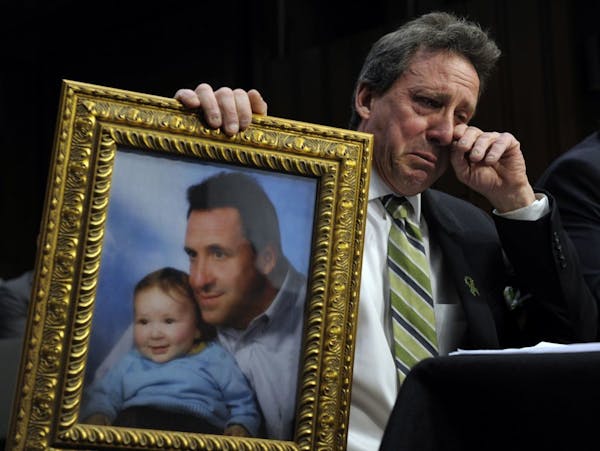The 58 percent of Americans who favor a ban on assault weapons got a sad lesson in Washington politics this week when a major bill to end their sale, and to eliminate the high-capacity magazines that allow mass killers to do their awful work without pausing to reload, was effectively squelched.
The reason? After Sen. Dianne Feinstein, D-Calif., drafted an improved version of her former assault-weapons ban, which was passed in 1994 but allowed to expire by Congress in 2004, Senate Majority Leader Harry Reid, D-Nev., stripped it out of a broader gun control package.
Reid calculated that Feinstein's measure would attract only about 40 votes, not enough to overcome a filibuster; he wants to focus instead on restrictions with more bipartisan support, such as expanding the criminal background check system and cracking down on straw purchasers who buy guns on behalf of criminals.
But something seems wrong with the math here. If such a large proportion of Americans favors a weapons ban — and an even bigger majority, 65 percent, backs banning high-capacity magazines carrying more than 10 rounds, according to a January poll by Washington Post/ABC — why the dearth of congressional support? Feinstein is pretty sure she has the answer. "You'd think the Congress would listen, but they clearly listen to the National Rifle Association."
Yet this is an organization with somewhere between 3 million and 4.5 million members (exact numbers are hard to come by), in a country where 70 million say they own guns, and millions more support broad gun rights. There is something else in the American character that makes us love our guns.
Some people love to hunt and some legitimately feel the need for self-protection, but our obsession with overpowered weapons runs deeper than the working-class frustration and bitterness that cause us to "cling to guns and religion," as President Obama notoriously said during a campaign speech in 2008.
For some, it stems from the feelings of power one gets by carrying a massive firearm; for others, it's a distrust of the government's ability to protect us, or paranoid fantasies fueled by exaggerated TV news coverage of crime, not to mention violent video games, movies and so on.
Certainly part of it is rooted in our history, in which freedom had to be won by the people by force of arms, leading to a constitutional amendment to keep firearms available. At its base is a simple but powerful emotion: fear.
Feinstein thought December's schoolhouse massacre in Newtown, Conn., would shift that fear in another direction. Apparently not. What will it take for that to happen? Just stand by. Another atrocity is sure to come.
Lab-grown beef is red meat for the conservative base


